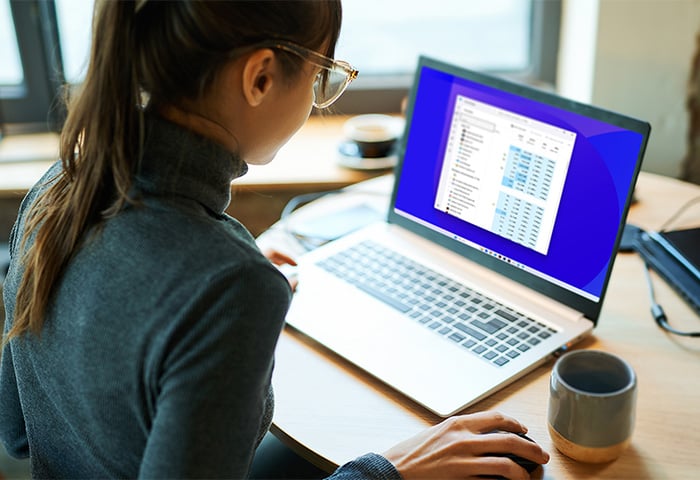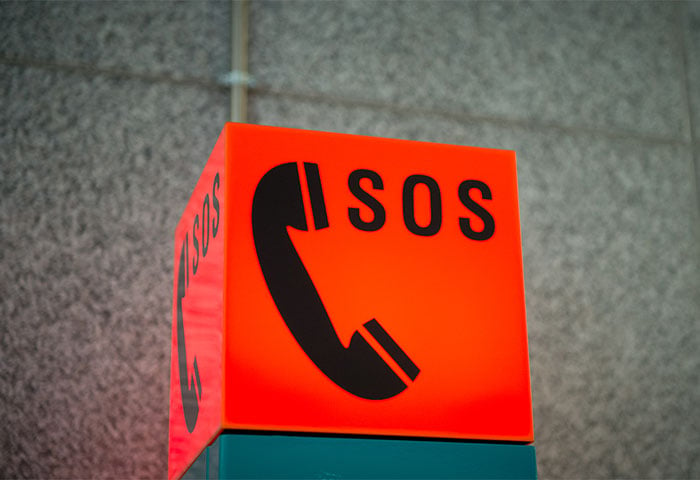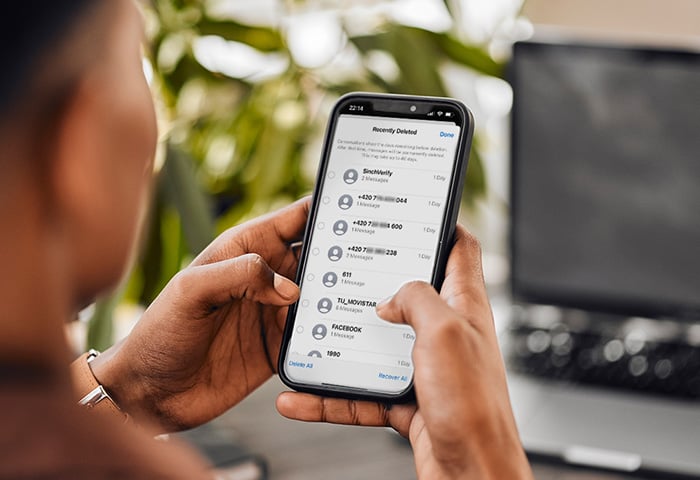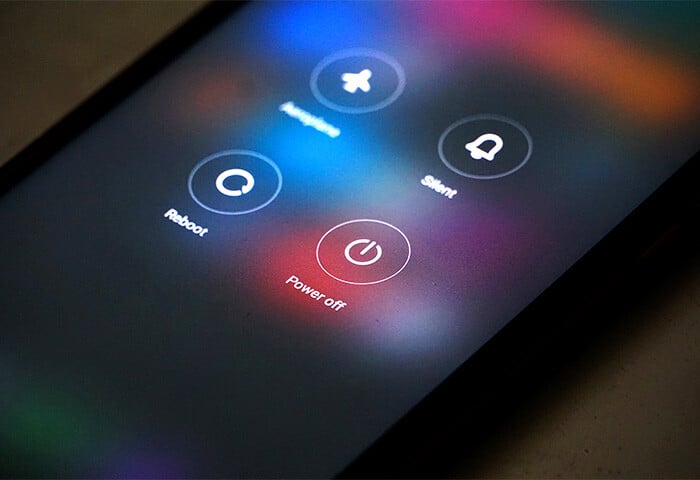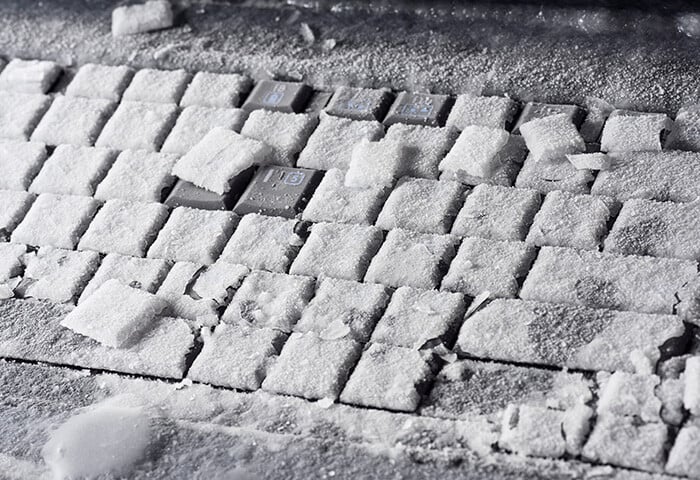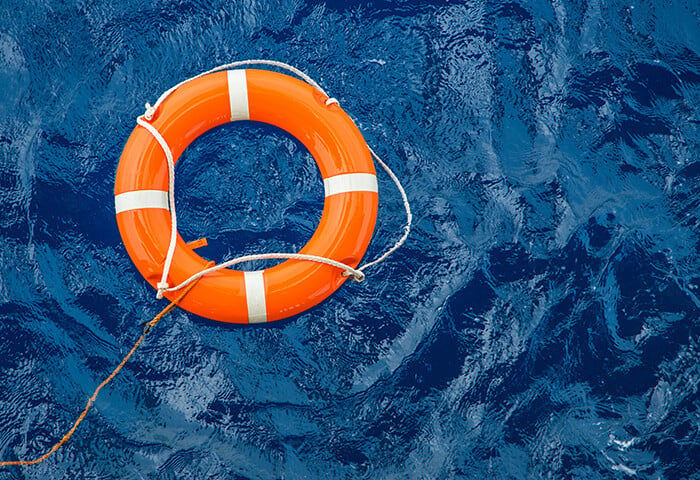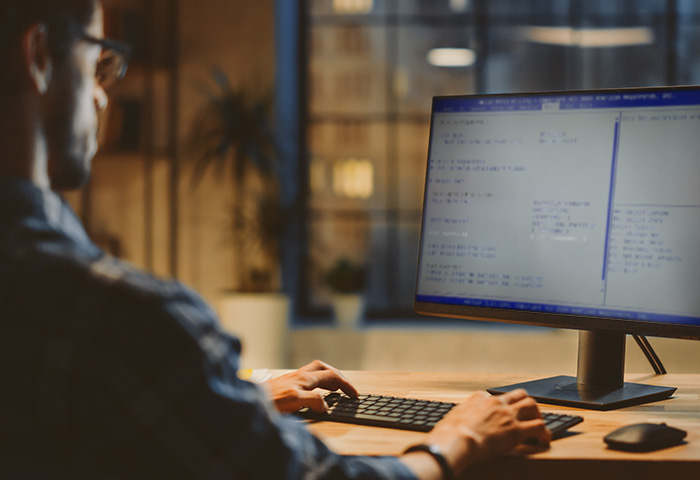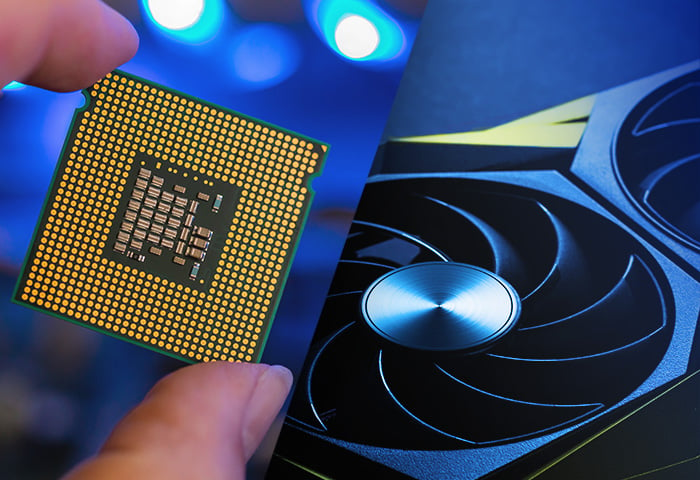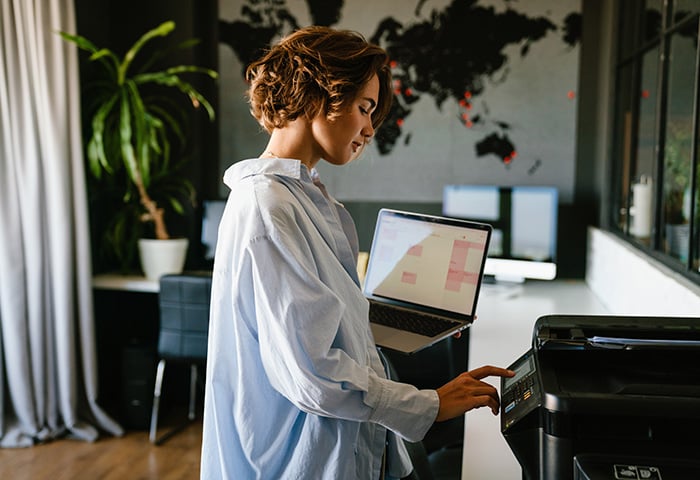Why do my apps keep closing on my Android?
If your Android apps keep crashing or freezing it’s usually because you’re low on space or running too many apps at once. Other reasons for crashing apps include a spotty Wi-Fi connection or if you have an old version of the app that hasn’t been updated.
Here are the most common reasons for app performance issues on Android devices:
-
You have too many apps open. Each open app uses resources like CPU power and memory. Android will kill off any apps that are causing the phone to run too low on any of these resources.
-
You’re running low on storage space. Some Android apps require free space to store temporary files while running. If your phone runs out of storage, the app may not function properly, and your device could struggle to store new data, like emails or text messages. Or your phone could freeze or crash.
-
Your apps are buggy. Freezing apps can be caused by the apps themselves, due to programming bugs or the way they’re used — if you try to do too much or tap too many buttons at the same time.
-
You have a malware infection. Your phone could be affected by malware such as ransomware, spyware, or a virus that causes your phone to freeze. If you think you have a virus on your phone, remove it as soon as possible and keep your device clean.
-
Your device is too hot. If your phone is overheating, your system may start closing down apps to avoid getting even hotter and keep it from becoming damaged.
-
Your device is not up to date. Updates can fix bugs that cause freezes or crashes. If your Android device isn’t updated, that might be the reason that your apps keep closing.
-
One app is using too much memory. Each app that runs on an Android device is allotted an amount of memory to begin with called the “heap limit.” If the app needs more memory than the heap limit can provide, an error will occur.
-
Your internet connection is broken. If you’re not connected to Wi-Fi and you’re out of mobile data, certain apps simply won’t work and could seem frozen while they wait for an internet connection.
13 ways to fix an Android app that keeps crashing
If your apps keep closing, some common fixes include restarting your device, reinstalling the offending app, or updating your Android operating system.
Here’s a list of 13 common fixes you can try when you have an app that keeps closing or crashing. Keep in mind that the menus and steps may vary slightly depending on your Android model and the operating system you’re running.
1. Update your Android's system software
An outdated Android system can cause bugs and crashes when you try to run apps that are incompatible with your installed system version, so it’s important to ensure that your Android operating system (OS) is updated no matter which variant your phone uses.
When connected to Wi-Fi, the Android system and its apps will update automatically by default. If this setting has been changed in the past or you have no available Wi-Fi connection, you might need to force an Android update. Here’s how you can update to the latest Android version on your device:
-
Open Settings and tap Software update.

-
If an update is available, select Download and install and tap Install now to begin the update.

2. Update the Google Play app
If your Google Play app keeps crashing, updating the Google Play app may resolve the issue. Regular updates ensure you receive the latest bug fixes, which helps prevent crashes. Updates are also crucial for security, as they keep Google Play Protect — an app scanning feature — current with the latest threat information to protect against malicious activity.
Here’s how to check if your Google Play app is the latest version:
-
Open the Google Play app and tap your Google profile icon in the top-right corner.
-
Tap Settings > About > Update Play Store to check for the latest update and install if needed.
3. Check your Wi-Fi connection
Some apps won’t work properly unless you’re connected to the internet. To check if you’re connected to a Wi-Fi network on an Android device, swipe down from the top of the screen to open the Quick Settings panel. If you’re connected to a Wi-Fi network, the Wi-Fi icon will be colored. If you need to fix the Wi-Fi, press and hold the icon to investigate further.
If you’re on a public Wi-Fi network, make sure you know how to secure your online communications. If the connection is slow, you can always try restarting your device to fix the problem. Or you might need to move to another area with a better signal.
Certain devices from Samsung and other manufacturers let you choose specific apps to work only when connected with Wi-Fi, only with mobile data, or both. It might be worth checking this on your device if you have an internet connection but an app isn’t loading properly or keeps crashing.
4. Identify the problem app
If you’re not sure which app is causing the problem, booting into safe mode on Android is one way to identify the offending app.
To boot into safe mode on Android follow these steps:
-
Hold down the Power button.
-
When the power options menu appears, tap Power off once and then hold Power off until it changes to safe mode.

-
Tap Safe mode to restart your device in safe mode.

In safe mode, only the phone's core applications run, which can help determine if a third-party app is causing crashes or performance problems. You can uninstall any performance-draining Android apps you have on your device and test their performance when you exit safe mode.
5. Force stop apps
If an app is hanging, try forcing it to stop. To do this, go to Settings > Apps > select the app > tap Force stop.
Some apps run in the background and are essential for your device to function properly, such as the Keyboard, Clock, and Google Play. Before force-stopping any app, search online for the app's name to ensure it isn't crucial for your Android's normal operation.
You should be wary of hacked apps that might have permission to use your camera or microphone or access files on your device. You should uninstall these and perform an anti-malware scan.
AVG AntiVirus for Android is a free anti-malware scanner that can remove persistent and hard-to-uninstall malware from your Android. Plus, it can help keep your phone safe going forward by blocking malware and malicious websites from infecting your device. Each month, we stop over 1.5 billion cyberattacks, so get AVG AntiVirus for Android now to help protect your phone and digital life.
6. Restart your device
When your Android apps freeze and crash, the problem can often be solved simply by restarting your phone. As you use your phone or tablet, all the instructions you give it can cause its system to get overloaded. Restarting your phone by turning it off and on again will often clear up the mess.
Restarting your device provides a quick refresh, especially when you're short on time and can't pinpoint which app is causing issues. It helps reinitialize crashed or frozen background processes, restoring them to a stable state and often resolving performance problems without the need for more detailed troubleshooting.
Restarting is as simple as holding the power button down and tapping Restart when the option appears.
7. Create more storage
If your apps keep closing on Android, it could be due to insufficient storage space. Apps need space to function properly — without it, they may cause your phone to overheat or disrupt other apps. Low storage can prevent your phone from operating at its best, which could explain why your apps keep stopping.
Here are some ways to free up space on your Android device:
-
Move photos and videos to USB or cloud storage. Moving large files from your phone's storage is a surefire way to free up a lot of space quickly.
-
Delete unused apps. Apps can take up a large amount of storage, especially games. Delete any you don’t use to make way for new ones and create space.
-
Clear the downloads folder. Go through your downloads folder and delete anything you no longer need and any duplicates you find.
If you don’t want the hassle of manually creating more space, get optimization software to do it for you. AVG Cleaner will find and clear hidden junk and bad photos, helping to keep your apps and phone running smoother. It will also show you all of your out-of-control apps so you can decide which are worth keeping open, then just tap to stop the rest.
8. Clear app data
Over time, your apps build up data related to your preferences, settings, and login information, which can slow them down. Clearing an app's data can help improve its performance and fix an app that keeps crashing and closing.
Here’s how you can clear app data for a specific app:
-
Open Settings and tap Apps.
-
Select the app you want to clear and tap Storage.

-
Depending on the app, you will see either Manage storage or Clear data. Tap whichever one you see.

-
If you tapped Clear data, then confirm the deletion to clear the app data. If you tapped Manage storage, then you can tap Clear all data
Your app data can include your login information, so you may have to log back into the app. To take the hassle out of how you log in to apps and websites, use a good password manager. Consider clearing your app data once a month, especially if the app generates a lot of data.
It can be a lot of work to keep up with all this maintenance. Thankfully it’s possible to automate this tedious work. AVG Cleaner can quickly clear your data and give you back valuable space, making sure you get better performance out of your battery and phone.
9. Clear cached data
Clearing Android cache can help to free up space and stop an app from hanging. An excess of cached data can be considered junk files that can cause performance problems, including sluggish loading times and a lack of responsiveness. By clearing the cache, you eliminate unnecessary files, which frees up storage space and enhances the app's speed.
The steps to clearing an app’s cache are similar to the steps for clearing data:
-
Open Settings, tap Apps, select the app you want to clear, then tap Storage.
-
Tap Clear cache to clear the app's cache.
10. Reinstall the problem app
Sometimes the app itself can be buggy, or maybe it isn’t running the latest version. If this is the case, the fix can be as easy as reinstalling the app on your device.
-
Tap and hold the app icon on the home screen and select Uninstall.
-
Go to Google Play, the Samsung App Store, or the developer’s website and reinstall it.
Whenever you install an app, check out who the developer is and make sure you’re installing the one you want. Sometimes fake apps will look just like the real versions — check out our Android app safety tips to keep your device healthy.
11. Review app permissions
If an app needs specific permissions to function, then you may need to adjust the permissions before it will work as you expect it to.
You can check app permissions with the following steps:
-
Open Settings and select Apps.
-
Choose an app whose permissions you want to review and tap Permissions.

-
A list of allowed or denied permissions will appear. Review the list and make changes as needed.

Many apps request permissions for features they don't actually need to function. Granting unnecessary access can make your phone less secure, so it’s good to know how to use Android app permissions.
Apps will ask for permissions like location, photos and videos, microphone, camera, files, and phone contacts. When reviewing an app's permissions, you need to think logically about which permissions you want to grant.
For example, a weather app might need your location to function, but it probably doesn’t need access to your camera or microphone. Apps that are asking for more permissions than they need could be spyware. Only allow an app access to what it needs to function normally.
12. Wipe your cache partition
The cache partition is a section of your Android device’s internal storage that is used to store cached data like temporary files. This is different from the app cache, because it typically doesn't store app-specific data. Instead, it holds system-related files like logs and temporary system data.
Over time, the data in the cache partition can become outdated or corrupted, taking up significant storage space and leading to crashes or causing your device to freeze.
Here’s how to clear your cache partition on Android:
-
Power off your device.
-
Hold the Volume up button while holding the Power button on your device until it powers on into Recovery mode (on some devices you may also need to hold the Home Button).
-
Use the Volume up and Volume down buttons to scroll through the Recovery mode menu until you find the option to Wipe Cache Partition. Press the Power button to select it.
-
Confirm the action by selecting Yes, then press the Power button.
Wiping your cache partition may cause your device to boot more slowly at first as it rebuilds temporary files, but it should boot faster afterward. This process is a good option to try before performing a factory reset, as it removes non-essential temporary files without affecting your personal data, apps, photos, or other stored files.
13. Consider a factory reset
If you’ve tried everything to fix your phone and apps are still not working, then it might be time to factory reset your phone. A factory reset is a drastic option, and it will cause you to lose data, so you should back up any important files before attempting it.
To perform a factory reset on your Android, follow these steps:
-
Go to Settings > General management > Reset.

-
Tap Factory data reset and then Reset to restore your device to its factory state.
Help prevent Android apps from crashing with AVG Cleaner
With all the apps and processes running on your phone, keeping track of everything that could cause apps to crash can be a lot of work. That’s why we developed a software solution to take care of the process automatically.
AVG Cleaner is a powerful device optimization tool that clears out unnecessary files, scrubs dirty apps, and identifies and fixes data-draining problems instantly. Get AVG Cleaner now to extend your battery life, free up space, and get your phone running optimally again.










